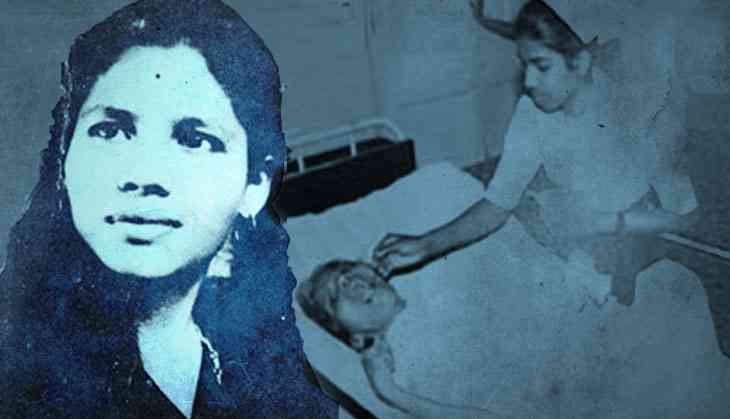SC allows passive euthanasia. Calls right to die with dignity fundamental

In a historic judgment, the Supreme Court held the right to die with dignity as a fundamental right and gave sanction to passive euthanasia and living will.
Pronouncing the judgment, a Bench headed by Chief Justice Dipak Misra laid down guidelines governing execution and enforcement of living wills and the procedure to be followed for passive euthanasia.
“To deprive an individual of dignity at the end of life is to deprive him of meaningful existence,” the Bench said.
The landmark verdict by the Constitution Bench of Chief Justice Dipak Misra, Justices AK Sikri, AM Khanwilkar, DY Chandrachud and Ashok Bhushan came in a public interest litigation filed by NGO Common Cause seeking legal recognition for ‘living will’ in India.
The petitioner through counsel Prashant Bhushan had sought suitable procedures to ensure that terminally ill patient or those in persistent vegetative state are not deprived of their rights to refuse cruel and unwanted medical treatment like feeding through hydration tubes, or being kept on ventilator and other life support machines in order to artificially prolong their natural life span.
The petition sought for a mechanism for allowing patient to execute a document 'My Living Will and Attorney Authorisation' that can be presented to hospitals expressing their wishes as to the medical treatment they would like to receive if they go into persistent vegetative state.
A Bench of then Chief Justice P Sathasivam in 2014 had referred the case to the Constitution Bench to resolve inconsistencies between the Division Bench judgment in Aruna Shanbaug case (2011), which allowed passive euthanasia under certain safeguards, and the Constitution Bench judgment in Gian Kaur (1996), which held that the right to life does not include the right to die.
In the Aruna Shanbaug case, the Supreme Court allowed passive euthanasia “under exceptional circumstances and under the strict monitoring of the Court”. It also laid down the difference between active and passive euthanasia observing that in active euthanasia something is done to end the patient’s life while in passive euthanasia, something is not done that would have preserved the patient’s life.
Delivering separate but concurrent judgments, the court said the life support can be removed only after the statutory medical board declares the patient to be incurable and directed the guidelines and directives so laid down shall be effective till a legislation was enacted for the purpose.
Living will
By executing a living will, a person with deteriorating health or the terminally ill can express his willingness to not remain in a vegetative state with life support system if he/she goes into a state when it will not be possible for them to express their wishes.
It allows a patient to give explicit instructions in advance about the medical treatment to be administered when he or she is terminally ill or no longer able to express informed consent.
It also includes authorising a family to switch off life support in case a medical board declared that a patient is beyond medical help.
The document can be presented to a hospital for appropriate action in the event the executant’s health worsens.
The government had opposed the concept of Living Will on the grounds that people opting for it may not be aware of future medical advancements.
There have been several instances of people approaching the court or the government seeking euthanasia for their near and dear ones including a man from Agra seeking death for six of his children diagnosed with a rare disease.
Bill on treatment of terminally ill-patients
The Law Commission of India first in March 2006 and subsequently in August 2012 had recommended a Bill to provide for the protection of patients and medical practitioners from liability in the context of withholding or withdrawing medical treatment including life support systems from patients who are terminally-ill.
Acting on the recommendations only in 2016, the Ministry of Health and Family Welfare released the draft Medical Treatment of Terminally-ill Patients (Protection of Patients and Medical Practitioners) Bill on May 9, inviting suggestions.
The draft Bill provides protection to patients and medical practitioners (from liability) for withdrawing medical treatment of terminally ill patients.
Key provisions of the draft Bill include:
Rights of a competent patient: Every competent patient (including minors above the age of 16 years) will have the right to decide and request the medical practitioner to withhold, withdraw, or continue medical treatment in case of a terminal illness. The practitioner will act on the request if he is satisfied that the patient is competent to take an informed decision.
In case of minors above 16 years, the consent of the parent and the major spouse will also be required.
Before proceeding with the decision, the medical practitioner will be required to inform persons including the spouse, or parent, etc of the need (or otherwise) for withdrawing treatment.
Protection to medical practitioners and competent patients: If a patient suffering from terminal illness refuses medical treatment, he will not be liable for an offence under the Indian Penal Code, 1860.
Without regard to provisions in any other law, in cases where a medical practitioner withdraws treatment on the request of a patient, his action will be lawful.
Procedure for incompetent patients: In case of an incompetent patient (persons of unsound mind, etc), a near relative, medical practitioner etc, can apply to the High Court for granting permission to withdraw or withhold medical treatment.
First published: 9 March 2018, 17:29 IST
